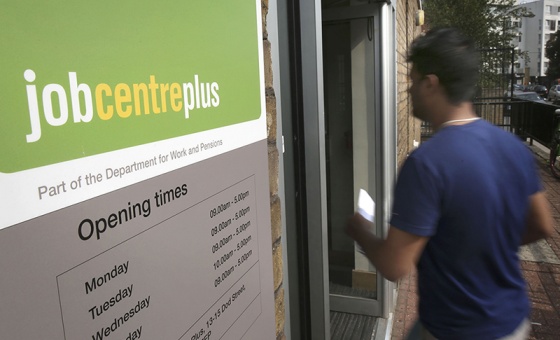This is the last article you can read this month
You can read more article this month
You can read more articles this month
Sorry your limit is up for this month
Reset on:
Please help support the Morning Star by subscribing here
THIS year will be remembered in Scotland for Covid-19. In better circumstances it might have offered an opportunity for a full and searching national reflection on the 21st birthday of the Scottish Parliament and the question of where next for Scotland. This is what we need.
Our Parliament’s early days led to free bus travel for over-sixties, the ending of up-front fees for university, protections for further education, “free” personal care for the elderly, the ending of council house sales, feu (land tenure) duties and warrant sales.
In both composition and legislative programmes, the Scottish Parliament is not unlike Westminster, albeit without the boorish boys’ club vibe.
Similarly, its response to the current health crisis has varied little from the other administrations on this island.
If, as seems likely, the Scottish National Party retains power in next May’s general election, the Scottish Parliament will press for another referendum on independence.
Whether Scotland secedes is a matter for the Scottish people. Neither Boris Johnson nor Sir Keir Starmer has any right to deny this.
But there is a preliminary question that the Scottish people also need to decide.
Should the options be solely separation or more of the same? Or should there also be an option for a Parliament more akin to what was called for back in the 1970s and ’80s by Scotland’s trade union and labour movement and its wider allies in communities across the country — a parliament with real economic powers of industrial and social intervention within a democratic reorganisation at British level that also provided for a redistribution of wealth and power across Britain, its nations and regions?
The result of the referendum in 2014 left a divided country with those who lost viewing every action through the prism of having been cheated.
Today another binary question is not what’s required. The status quo will please few.
Separation as proposed by the SNP is politically and economically dangerous and problematic.
It involves re-entry to the EU and its neoliberal pro-big-business structures. Worse still, the neoliberal fiscal terms required for EU entry would condemn Scotland to decades of austerity — in a country where millions are already struggling with job losses, precarious work, housing insecurity, pension and benefit cuts.
A big failure of the 2014 referendum was the lack of a third choice — as argued for at the time by several major trade unions.
This called for a federal structure of representation that included the principle of fiscal redistribution to secure more equal development across the nations of Britain — something quite different from the “devo max” currently promoted by Gordon Brown, Tony Blair, Malcolm Rifkind and Lord Steel.
Today such an alternative is even more necessary: a progressive federalism that can address issues of social justice and class inequality across the entirety of this island.
It’s a demand profoundly linked to re-establishing issues of national and regional identity on class terms as a bulwark against big business and its political allies.
It is, I would argue, the key challenge facing the left: to establish this option as the credible alternative to the plans of both the SNP and right-wing elements in Labour and the Tory Party.
We already know the basis on which the SNP will fight the referendum.
Its programme for “independence” is outlined in the Growth Commission report of 2018 and adopted as SNP policy in 2019.
The report was compiled by ex-SNP MP and RBS economist Andrew Wilson.
Its perspectives for growth post-independence are almost entirely based on attracting corporate investment from elsewhere and on growth via a reinvigorated Scottish financial hub in Edinburgh as City of London financiers switch operations north of the border.
It offers a back door into the EU and is why, for today’s SNP leadership, sterling is the preferred post-independence currency prior to adopting the euro — despite Scotland having no means of influencing fiscal and monetary policy.
The report itself acknowledged, as written in 2018, that, in line with EU requirements, Scotland’s national debt would have to be reduced from 80 per cent to 60 per cent of GDP and an annual deficit from 7 per cent to 3 per cent of GDP — a process estimated in the report as requiring 10 years of austerity.
That was in 2018.
Already pre-Covid in 2019 the deficit had risen to 8.6 per cent. As a result of the Covid crisis the Fraser of Allander Institute predicts the figure for 2020-21 to be over 20 per cent.
The UK national debt which Scotland would share proportionately will be well over 110 per cent.
Rather than redistributing the wealth and power concentrated in London and the south-east to the regions and nations in order to revitalise our shared economies, those advocating “independence” have chosen a path that will lead to intensified deindustrialisation and social impoverishment — even if to the possible benefit of some finance companies in Edinburgh.
Re-entry to the EU would deny state aid to companies like BiFab, St Rollox locos or Alexander Dennis bus makers or any other company in need of support to retool or expand to meet new opportunities or challenges.
Those on the left who support separation appear to disregard the damage that will be done to the possibility of redeveloping all-island working-class unity — so important for major advances in the 20th century (and potentially at least much more recently) — and that such classless nationalism would also gravely weaken the institutions of working-class cohesion in Scotland itself.
Britain currently boasts the highest rates of regional inequality in the developed world: 24th out of 27 countries in the Organisation for Economic Co-operation and Development in terms of disparities in economic growth, research and development, innovation, health, unemployment and educational achievement.
Separation on SNP terms would at best freeze these inequalities; at worst gravely worsen them.
Only a federated Britain of equal partners would have the means to address this disparity on terms that would strengthen working-class cohesion across Britain and in Scotland itself.
The left needs to enter the debate on a future referendum highlighting what’s best for our class — and that means a genuinely progressive third option that enables the social and regional redistribution of wealth and building the class power of working people.
Keith Stoddart is chair of the Scottish committee of the Communist Party of Britain.










